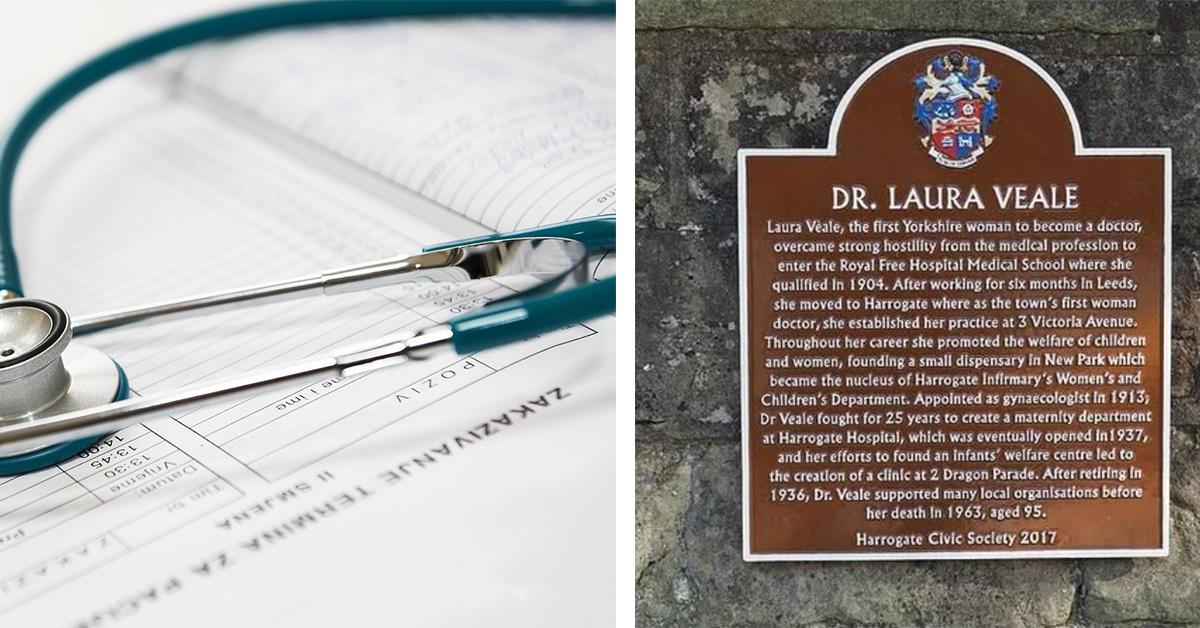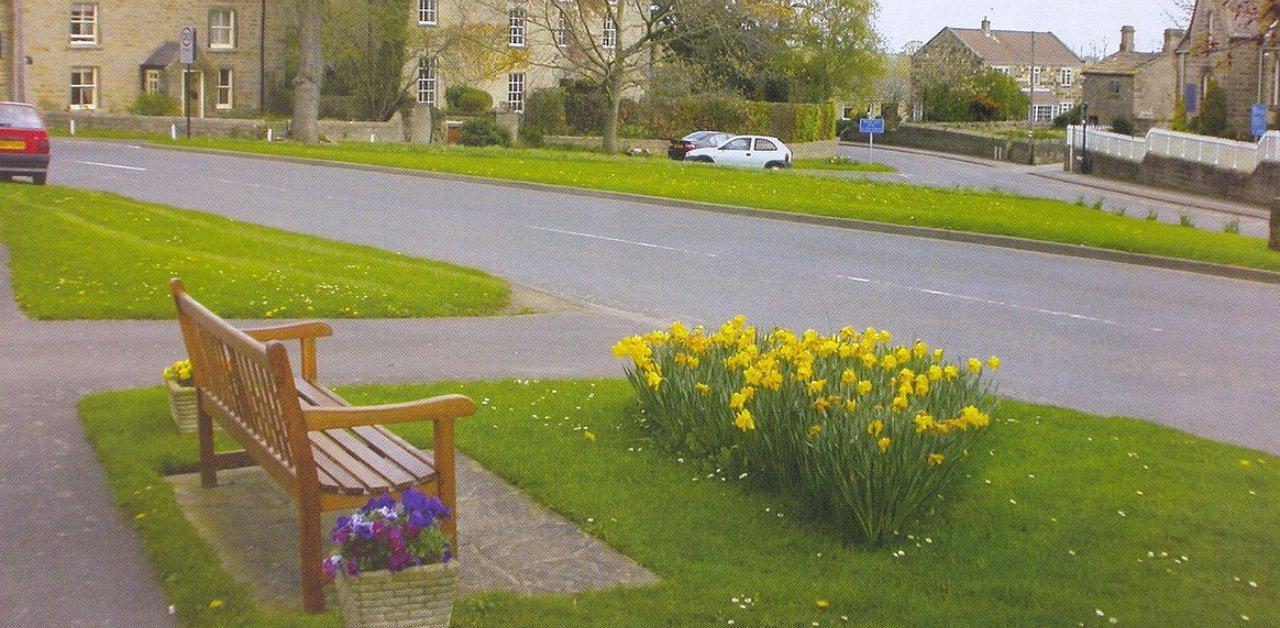Subscribe to trusted local news
If you are accessing this story via Facebook but you are a subscriber then you will be unable to access the story. Facebook wants you to stay and read in the app and your login details are not shared with Facebook. If you experience problems with accessing the news but have subscribed, please contact subscriptions@thestrayferret.co.uk. In a time of both misinformation and too much information, quality journalism is more crucial than ever. By subscribing, you can help us get the story right.
- Subscription costs less than £1 a week with an annual plan.
Already a subscriber? Log in here.
14
Apr 2024
Local history spotlight: Dr Laura Veale

If you’re walking down Victoria Avenue in Harrogate and keep your eyes peeled, you’ll notice a brown sign affixed to a stone wall outside one of the impressive town houses.
If you stop to take a closer look, the person commemorated by this plaque might not be known to you – but Dr Laura Veale has left a worthy legacy in the field of medicine, both in Harrogate and beyond.
As the first female doctor in North Yorkshire, she’s been described as a pioneer and a trailblazer, but it can be argued that both words fall short of encapsulating her extraordinary life.
The early years
Dr Veale was born on August 30, 1867, in Hampsthwaite, a village near Harrogate. It appears as though medicine was something of a family affair; her father Dr Richard Sobey Veale was a prominent doctor in the area, and both her brothers Henry and Rawson Augustus also pursued medical careers.
It was sadly unsurprising, and reflective of the general sentiment of the time, that Dr Veale encountered hostility and derision when she expressed her intention to follow the same path as her family.
Despite the fact her father was associated with the Leeds School of Medicine, it would not accept her as a student, which led her to apply to the University of London instead.
She felt as though she had received an 'unsatisfactory schooling' compared to her male peers which made the university’s matriculation especially daunting.

Hampsthwaite
In a move that must have been considered quite unusual at the time, the headmaster of Harrogate College allowed her to work with the sixth form boys in order to improve in the areas she felt she lacked knowledge.
Dr Veale then went on to the Royal Free Hospital to complete her medical studies in 1904, and once qualified she returned to Yorkshire and took up a position at the Hospital for Women and Children in Leeds.
After six months, she moved back to Harrogate and set up a general practice at 3 Victoria Avenue, cementing her status as the first female doctor not only in the town, but in the North Yorkshire region too.
An advocate for women and children’s health
While in Harrogate, Dr Veale made a big impact not only in the medical profession, but in the local community too.
At a time when not only were women and children still considered inferior to adult men, she was at the forefront of advocating for improvements in the care offered to those groups, especially in deprived communities.
Notable achievements include setting up a dispensary in New Park, acting as medical officer at the Municipal Babies Hospital and helping set up numerous child welfare and antenatal clinics in Harrogate.
The clinic at 2 Dragon's Parade still stands today, and is a base for child and adolescent mental health services.
Dr Veale worked as an obstetrician and a gynaecologist at Harrogate Infirmary for many years. By 1937, the first maternity ward was finally opened at the hospital – something that she had campaigned hard to establish for nearly three decades at that point.
Outside of her profession, she continued to improve life for residents of the area, and was heavily involved in several charitable organisations, including the Yorkshire Council for the Empire Cancer Campaign, and organising the Yorkshire Children’s Jewel Fund.
She retired from medicine in 1936 but continued to play a huge part in the local community, taking on an integral role in establishing the Women’s Voluntary Service for Harrogate during the Second World War.
A continued legacy

The plaque outside 3 Victoria Avenue
Dr Laura Veale died on August 14,1963, at Scotton Banks Hospital in Knaresborough at the age of 95.
Her obituary in the British Medical Journal described her as a ‘remarkable woman’, and The Harrogate Advertiser accredited her with having a ‘noble mind’ that kept pace with the ‘vast changes in her profession’ over the years.
In 2017, the Harrogate Civic Society installed a brown plaque on Victoria Avenue, where her general practice had been located.
Speaking to the Stray Ferret in 2020, Dr Paul Jennings from Harrogate Civic Society History said:
"She deserves recognition as an important figure in the history of both medicine and feminism and a key figure in medical provision, especially for women and infants, in her native county and more particularly Harrogate.
"It is as a pioneering woman in the medical profession and through her wider work for the community that she is so important to Harrogate."
Sources for the article include an article on nycroblog.com, the Harrogate Civic Society website, the Harrogate plaques website and Dr Veale’s obituary on bmj.com.
0